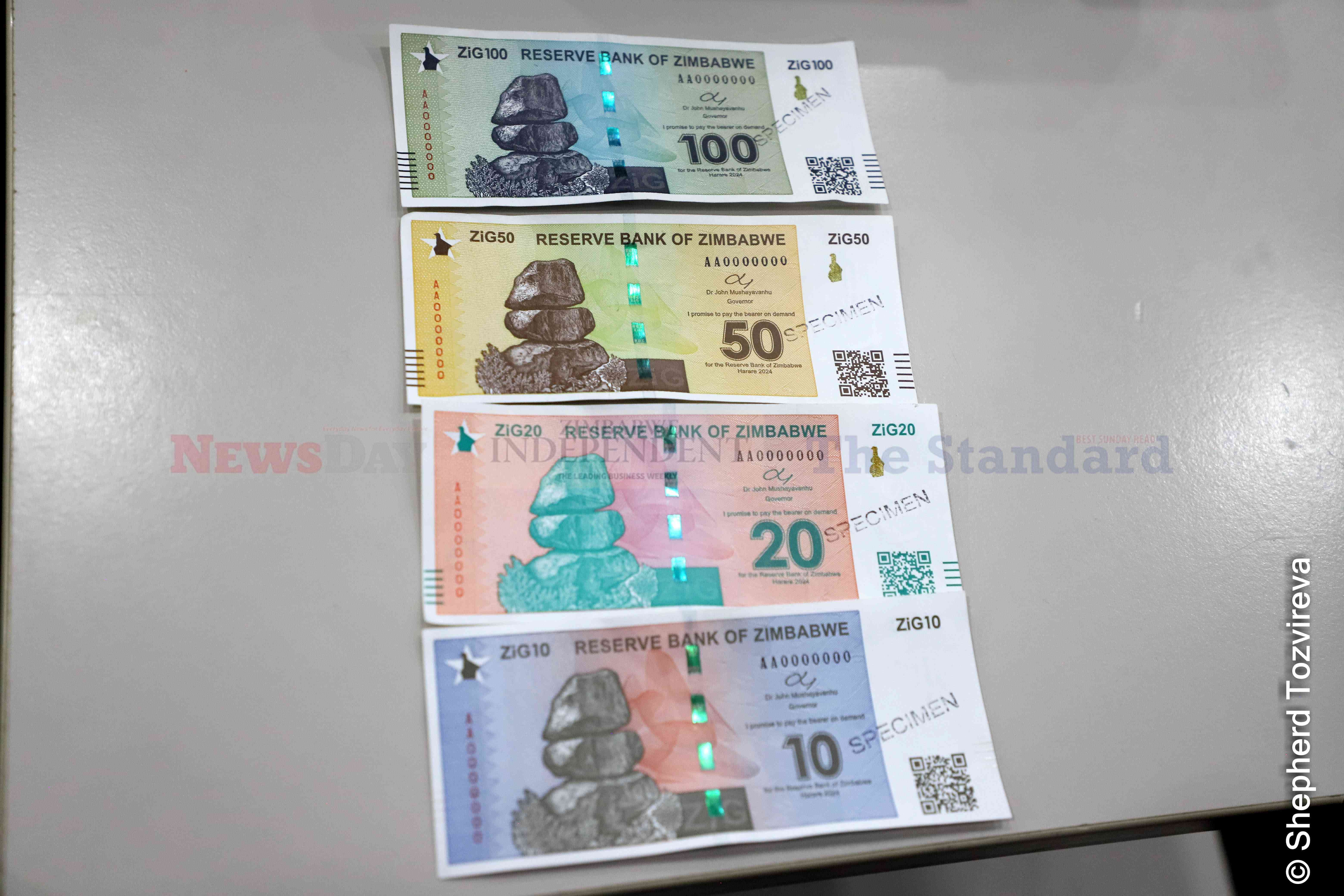
The recent announcement by the Zimbabwean government to eliminate penalties for businesses charging above the official exchange rate has generated considerable conversation within economic circles.
Statutory Instrument 34 of 2025 marks a significant departure from the previous regime established by SI 81A of 2024, which heavily penalized businesses that set prices higher than the official rates established by the Reserve Bank of Zimbabwe (RBZ).
This new policy is expected to have profound implications for the economy, particularly for informal economy actors—small and medium enterprises (SMEs), street vendors, and other unregistered businesses that operate outside the formal constraints of regulatory frameworks.
To understand the impact of the new regulations, it is essential to consider the historical context of Zimbabwe's exchange rate policies.
Since the introduction of the ZiG currency in 2024, Zimbabwean businesses have struggled with a dual pricing system dictated both by the official interbank rate and parallel market rates.
SI 81A enforced stringent penalties for businesses operating beyond the official exchange rate, effectively criminalizing any attempts by firms to offset inflation and currency depreciation through pricing mechanisms.
Under the previous regulations, businesses that charged higher than the official rate faced heavy fines—up to ZiG200,000 or an equivalent amount in foreign currency, compounded with daily penalties of 5% for delayed payment.
These measures not only stifled market activity but created an environment of uncertainty, particularly for informal actors who were disproportionately affected by such regulations.
- Awards target married couples
- Awards target married couples
- Zimbabwe needs to rethink economic policies
- Zimbabwe needs to rethink economic policies
Keep Reading
With limited access to forex and working capital, many in the informal sector resorted to the black market for their currency needs, leading to inflated prices and reduced competitiveness.
The repeal of SI 81A and the accompanying removal of penalties for pricing above the official exchange rate is a long-overdue correction aimed at stabilising the economy.
By allowing businesses greater flexibility in determining their prices, the government acknowledges the complexities faced by entrepreneurs, especially in the informal economy, where operational costs often surpass the official rates.
Informal economy actors, who include small traders, artisans, and street vendors, often possess limited pricing power due to their lack of access to credit facilities, insurance, and regulated markets. Under the previous regime, these actors were often put in jeopardy, fearing legal repercussions for their pricing strategies.
The new regulations promise to alleviate some of this pressure, allowing them to operate more sustainably.
This shift can be instrumental in mitigating informal sector inflation caused by operational costs that have risen in alignment with market prices.
The informal economy constitutes a considerable part of Zimbabwe’s overall economic landscape—estimated to involve between 60% to 90% of the working population.
It encompasses a wide range of activities, from informal retail and street vending to small-scale artisanal production and home-based industries.
These entities contribute significantly to employment, income generation, and community resilience, especially in times of economic downturn.
Informal sector actors have historically been marginalized by regulatory frameworks that fail to recognise their contribution to the economy.
This new policy change provides an opportunity for these actors to operate more competitively, helping them better align their pricing structures with market realities driven by demand and supply.
One of the implications of loosening penalties for informal economy actors is the potential for encouraging formalisation.
When informal businesses feel trapped by stringent regulations, there is often a lack of incentive to transition into the formal economy, where they could access various support services, financial systems, and legal protections.
However, this flexibility in pricing might lead to an increased number of informal actors registering their businesses as they see an opportunity to thrive without punitive repercussions.
It can be argued that the government’s move signals an acknowledgment of the role the informal economy plays. By adopting a more accommodating regulatory environment, the government can foster an ecosystem where informal businesses feel empowered to register and adhere to tax regulations, thus expanding the tax base and contributing to national revenue in the long term.
While the removal of penalties alleviates immediate pricing pressures, challenges surrounding access to foreign currency remain formative hurdles for informal economy actors.
Many in the informal sector often find themselves relying on the black market for forex to procure inventory or services, further exacerbating their pricing challenges.
Although the RBZ's recent adjustments have allowed for some trading flexibility, achieving genuine forex accessibility for informal actors still requires systemic changes.
To effectively support these actors, the government must consider complementary measures.
These could include establishing accessible forex allocation systems for SMEs, targeted financings, and mechanisms to stabilize the value of the ZiG currency in the face of global market fluctuations.
The change in policy is expected to encourage greater economic activity in the short to medium-term, particularly within the informal economy, as businesses can now price their goods and services responsively without the risk of incurring fines.
This increased activity could lead to a more pragmatic pricing environment, where prices reflect true market conditions rather than artificial ceilings imposed by policy.
Enhanced responsiveness to market demands could facilitate better supply chain positioning for informal actors, improving the variety and quantity of goods and services flowing into communities.
Additionally, as players in the informal economy adopt more market-driven pricing strategies, there may be a spillover effect on consumer perception, leading to increased confidence in local products and services.
The government’s decision to drop penalties for charging above the official exchange rate marks a significant step forward for informal economy actors and the broader economic landscape in Zimbabwe.
It reflects an understanding of the realities faced by businesses operating amidst volatility and uncertainty.
The implications of this regulatory change are far-reaching; it has the potential to enhance the sustainability of small enterprises, encourage formalisation, and stabilize pricing in the sector.
As the informal economy reorients itself to operate more freely within this new framework, it is essential for the government to complement these changes with supportive measures that address the persistent challenges of forex accessibility and operational costs.
In a challenging economic context, fostering resilience among informal economy actors is not just beneficial; it is crucial for the recovery of Zimbabwe’s economy.
The policy shift is a long-overdue reform that, if implemented thoughtfully and accompanied by additional supportive initiatives, could lead to newfound opportunities for growth and resilience in a segment of the economy that has become increasingly vital in recent years.
*Samuel Wadzai is an informal economy expert and currently the executive director for the Vendors Initiative for Social and Economic Transformation (VISET) Feedback: Email address: swadzai@visetonline.org
These weekly articles are coordinated by LovemoreKadenge, an independent consultant, managing consultant of Zawale Consultants (Private) Limited, past president of the Zimbabwe Economics Society and past president of the Chartered Governance & Accountancy Institute in Zimbabwe. Email- kadenge.zes@gmail.com and Mobile No. +263 772 382 852









